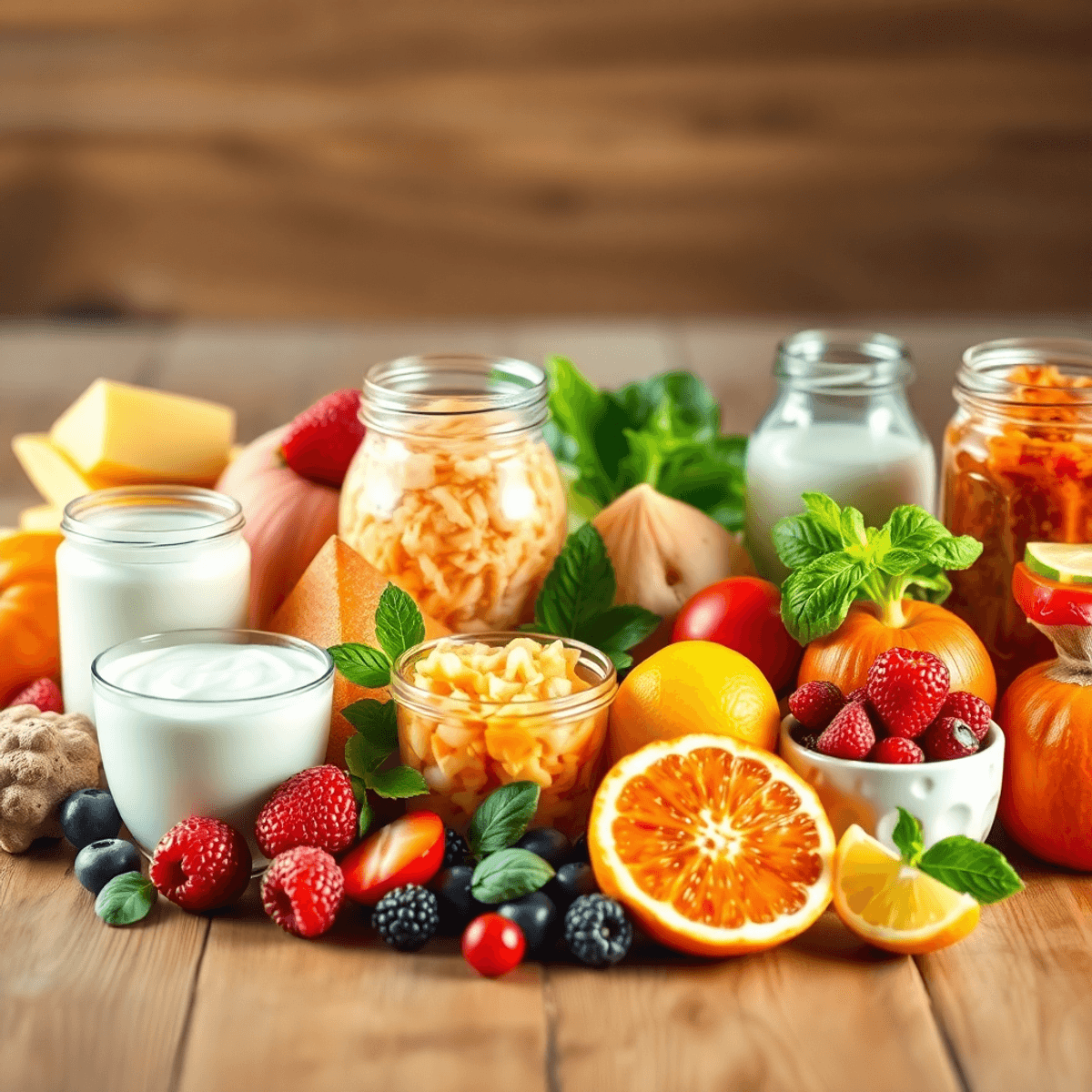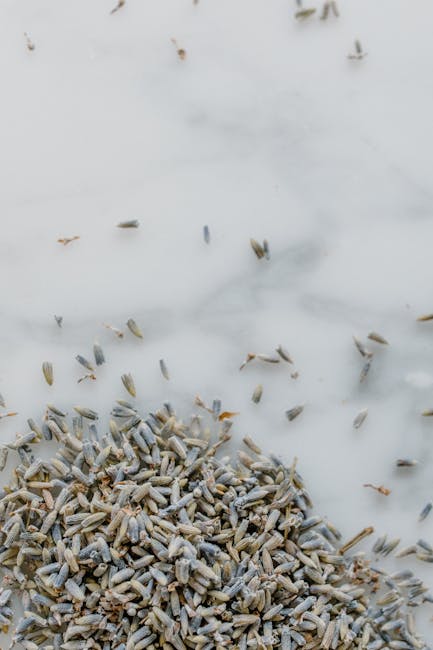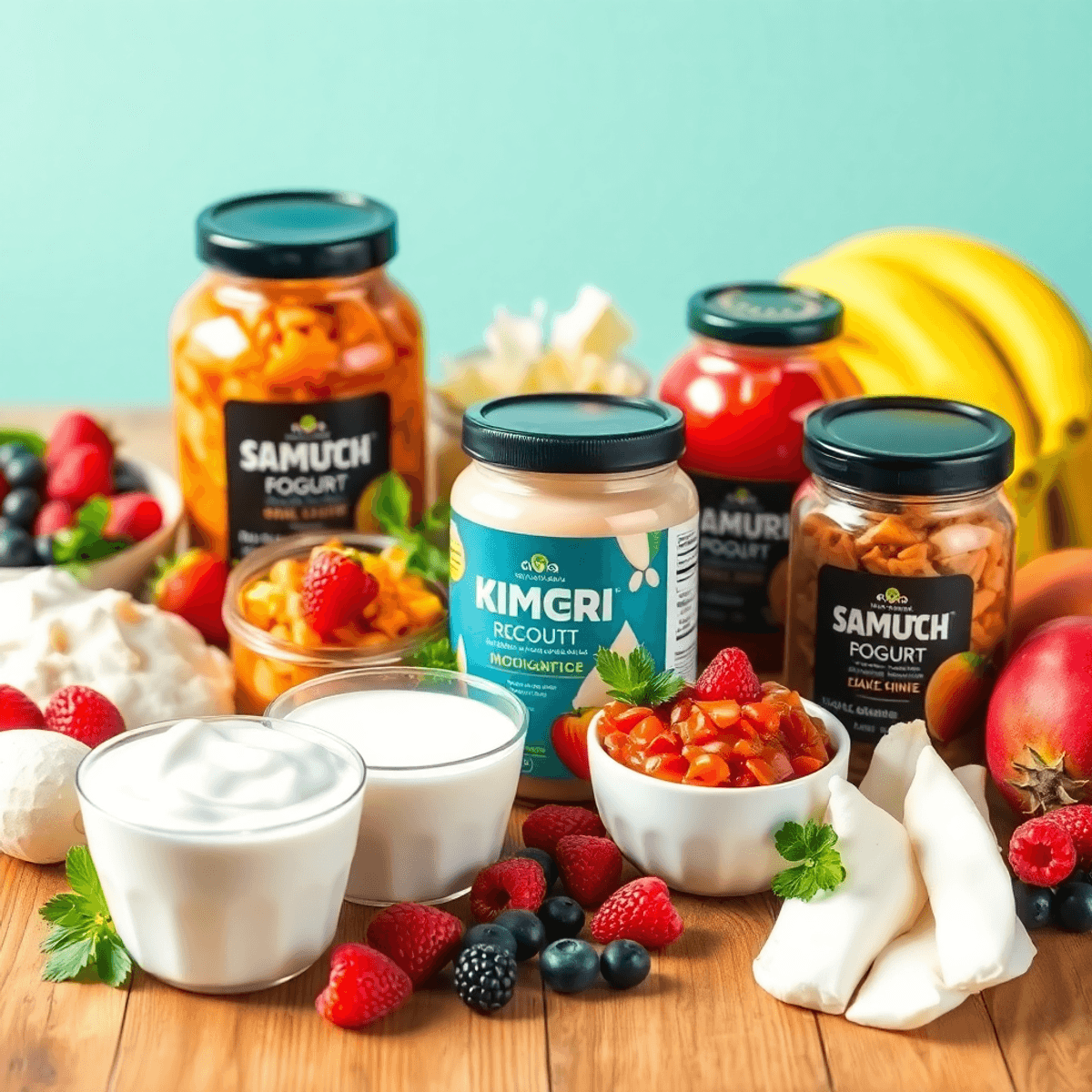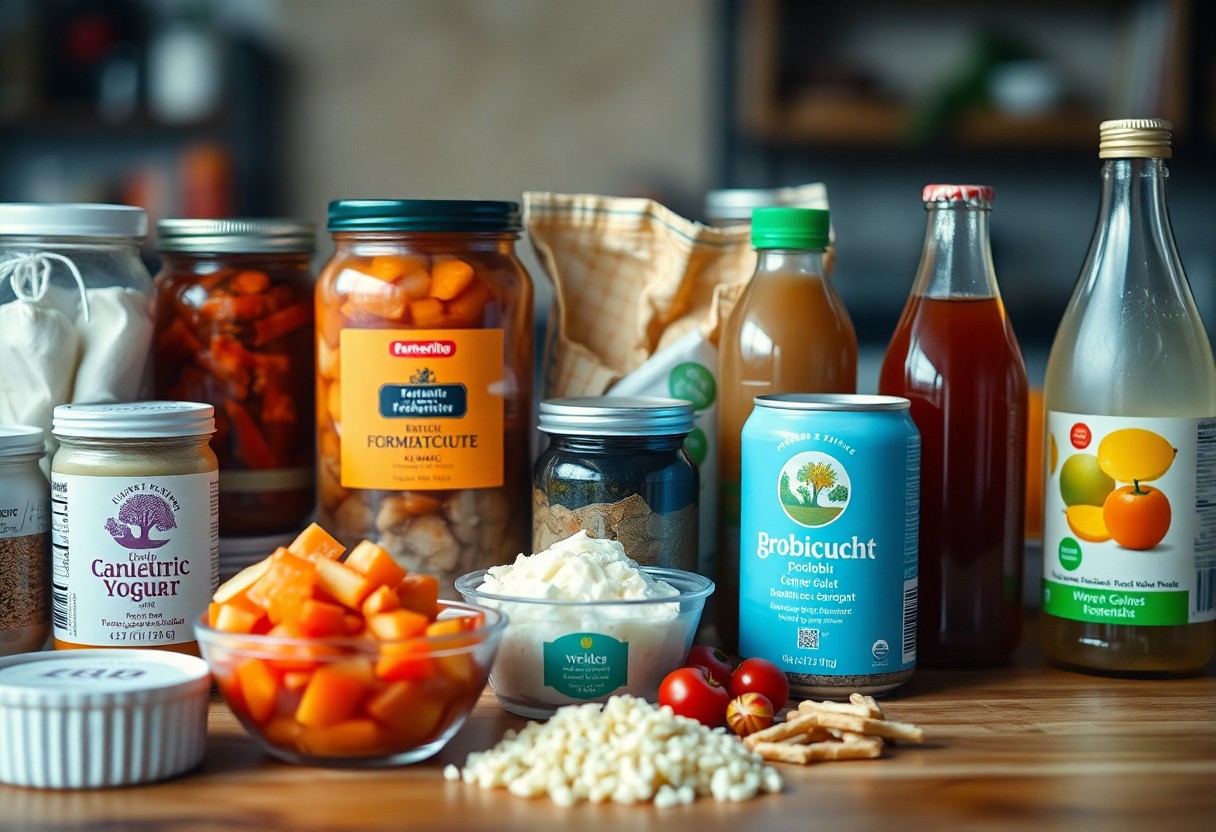Probiotics are live microorganisms that can offer significant benefits for both gut and skin health. They work by maintaining a healthy balance of bacteria in the body, which is crucial for optimal functioning. As research evolves, there is a growing interest in using probiotics as a natural method to enhance complexion and support skin wellness
.
The connection between gut health and skin conditions is known as the gut-skin axis. This relationship highlights how an imbalance in gut bacteria can lead to various skin issues. Understanding this connection is important for anyone looking to maintain or improve their skin health. By using probiotics, you may be able to address underlying imbalances and promote a healthier, more radiant complexion.
Understanding Probiotics and the Gut-Skin Connection
What Are Probiotics?
Probiotics are live microorganisms that, when consumed in adequate amounts, confer health benefits to the host. These beneficial bacteria primarily reside in your gut, where they play a crucial role in maintaining a balanced gut microbiome. By promoting a healthy gut environment, probiotics support digestive health and strengthen your immune system.
Different Types of Probiotics and Their Benefits
Different strains of probiotics offer distinct benefits:
- Lactobacillus: Known for aiding digestion and enhancing immune function. Certain strains like Lactobacillus johnsonii are particularly noted for their role in boosting skin health.
- Bifidobacterium: Often found in fermented foods, these strains help reduce intestinal inflammation and improve overall gut health. They contribute significantly to both gut and skin wellness.
- Other noteworthy strains include Saccharomyces boulardii (a yeast used to treat diarrhea) and Streptococcus thermophilus (improves lactose digestion).
Each strain works uniquely within the body, offering specific advantages that can enhance overall well-being.
The Gut-Skin Connection
The connection between your gut and skin is referred to as the gut-skin axis. This concept highlights how imbalances in your gut bacteria can manifest as skin issues such as acne, eczema, or psoriasis. When the gut microbiome is disrupted—often by factors like diet, stress, or antibiotics—this imbalance can lead to increased inflammation both within the gut and on the skin.
Imbalances disrupt the immune response, weaken the skin barrier, and trigger inflammatory processes that may worsen skin conditions. By restoring balance through probiotics, you may experience improvements not only in digestive health but also in skin clarity and resilience.
Understanding this gut-skin connection emphasizes why probiotics for gut and skin health have gained traction as a natural approach to achieving a healthier complexion.
How Probiotics Support Skin Health: Mechanisms of Action
Probiotics play a significant role in reducing oxidative stress and inflammation, two major contributors to various skin conditions. Oxidative stress occurs when there is an imbalance between free radicals and antioxidants, resulting in cell damage and accelerated aging. Probiotics can help fight against oxidative stress by boosting the body’s antioxidant defenses, thereby reducing damage at the cellular level.
Reducing Inflammation
Many skin conditions, such as acne and eczema, are worsened by inflammation. Probiotics work to suppress inflammatory responses by regulating the production of pro-inflammatory cytokines. This regulation helps calm skin flare-ups and promotes clearer skin.
Enhancing Immune Function
A balanced immune function is crucial for maintaining healthy skin. The immune system protects against harmful microorganisms that can cause infections or worsen existing conditions. Probiotics enhance immune function by stimulating the production of protective antibodies and modulating the activity of immune cells. This improved response can prevent infections and support recovery from skin disorders.
Specific probiotic strains strengthen the gut-associated lymphoid tissue (GALT), which is vital for a robust immune system. By reinforcing this foundation, probiotics indirectly contribute to stronger skin defenses.
Supporting Skin Barrier Integrity
The skin barrier acts as a critical defense mechanism against environmental aggressors while also keeping the skin hydrated. When the barrier is compromised, it can lead to increased transepidermal water loss (TEWL) and make the skin more susceptible to irritants. Probiotics support the integrity of the skin barrier by helping maintain optimal pH levels and promoting the growth of beneficial bacteria on the surface of the skin.
Certain probiotics have been found to boost ceramide production, which are essential lipids that form part of the skin’s barrier. This enhancement leads to better moisture retention and protection against external pollutants.
Understanding these mechanisms highlights how probiotics can be instrumental in promoting healthier, more resilient skin through their effects on oxidative stress, immune function, and barrier protection.
Probiotic Strains Beneficial for Skin Health
Certain probiotic strains stand out for their potential to enhance skin health.
1. Lactobacillus johnsonii
Lactobacillus johnsonii is one such strain, known for its ability to support the skin’s immune system. By boosting the skin’s natural defenses, this strain helps protect against pathogens and environmental stressors.
2. Bifidobacterium strains
Bifidobacterium strains also play a significant role in promoting both gut and skin wellness. These strains work by balancing the gut microbiome, which can have a direct impact on skin conditions such as acne and eczema. By maintaining a healthy balance of gut bacteria, Bifidobacterium strains may help reduce inflammation and improve overall skin texture.
These probiotics underscore the importance of selecting specific strains tailored to individual needs, offering a promising natural approach to achieving healthier skin through targeted supplementation. Understanding how these strains contribute to both gut and skin health paves the way for incorporating probiotics into daily routines.
Incorporating Probiotics into Your Skincare Routine
The skincare industry is embracing the potential of topical probiotics, integrating them into various skincare products designed to enhance skin health from the outside. Topical probiotics are applied directly to the skin, aiming to balance the skin’s microbiome, reduce inflammation, and strengthen the skin barrier.
Potential Benefits of Topical Probiotics
- Balancing Skin Microbiome: By introducing beneficial bacteria directly onto the skin, topical probiotics may help maintain a healthy balance of microorganisms. This balance is crucial for preventing conditions like acne and eczema.
- Reducing Inflammation: Many skin issues stem from inflammation. Topical probiotics can potentially soothe inflamed skin by modulating immune responses and reducing inflammatory cytokines.
- Enhancing Skin Barrier Function: A robust skin barrier prevents moisture loss and shields against environmental aggressors. Probiotics might support this barrier by promoting better moisture retention and protecting against damage.
Research on Effectiveness
Current research suggests that topical probiotics hold promise for improving skin health, but how do they compare with oral formulations? Both methods aim to deliver beneficial bacteria, yet they work through different mechanisms:
- Topical Application: Directly targets the skin’s surface, potentially offering quicker results for surface-level issues. Studies have shown improvements in conditions such as acne and atopic dermatitis using topical probiotic preparations.
- Oral Formulation: Influences the gut-skin axis more holistically, potentially offering systemic benefits that reflect in overall skin health.
Each method has its own merits, and combining them might offer a comprehensive approach to tackling skin concerns. However, ongoing research continues to explore their respective efficacies, optimal strains, and formulations needed for maximum benefit.
Dietary Sources of Probiotics for Gut and Skin Health
Including probiotic-rich foods in your diet can be a delicious way to support both gut and skin health. Fermented foods are particularly famous for their probiotic content. Here’s a list of some probiotic-rich options you can consider:
- Yogurt: Often the go-to for probiotics, yogurt contains live cultures that can help balance gut flora. Opt for varieties with live and active cultures for maximum benefits.
- Kefir: This fermented milk drink is similar to yogurt but typically contains more diverse strains of bacteria and yeast, making it a potent source of probiotics.
- Kimchi: A staple in Korean cuisine, kimchi is made from fermented vegetables and offers a spicy kick along with beneficial bacteria that contribute to gut and skin health.
- Sauerkraut: Another vegetable-based option, sauerkraut is fermented cabbage known for its high probiotic content.
- Certain Cheeses: Some cheeses, like Gouda or cheddar, contain live cultures. Always check labels to ensure they include beneficial bacteria.
Including these foods in your diet not only enhances gut health but may also positively impact your complexion by maintaining the gut-skin axis.
Prebiotics, Postbiotics, and Clinical Evidence Supporting Probiotics for Skin Health
Understanding the role of prebiotics and postbiotics can be invaluable in the quest for radiant skin. While probiotics are live microorganisms that confer health benefits, prebiotics serve as nourishment for these beneficial bacteria, enhancing their growth and activity. Found in foods like garlic, onions, and bananas, prebiotics contribute to a balanced gut microbiome by fueling probiotic strains. Postbiotics, on the other hand, are the metabolic byproducts of probiotics. These compounds can have direct skin benefits by reducing inflammation and supporting skin barrier function.
Clinical Studies and Skin Health
Research into probiotics for inflammatory skin conditions—such as acne—provides insight into their potential effectiveness. Several clinical studies highlight how specific probiotic strains can alleviate symptoms:
- Acne: A study published in the Journal of Cosmetic Dermatology examined the impact of oral Lactobacillus rhamnosus on acne-prone individuals. Participants reported reduced lesion counts and improved overall skin condition after regular supplementation.
- Eczema: Research featured in the British Journal of Dermatology explored using Bifidobacterium lactis in children with eczema. Results demonstrated decreased severity and frequency of flare-ups due to enhanced immune modulation.
- Rosacea: Another study found that topical application of Lactobacillus plantarum helped reduce inflammation and redness in individuals with rosacea, showcasing the potential of topical probiotics.
These findings highlight the promise of integrating probiotics into skincare routines for managing inflammatory skin issues. However, continued research is necessary to establish definitive protocols concerning specific strains and dosages for optimal results.
Integrating Probiotics into Your Routine: Practical Tips for Improved Complexion
Taking a holistic approach to skincare involves addressing both internal and external factors to maintain a healthy complexion. Here are some practical tips:
Internal Strategies
- Dietary Intake: Incorporate a variety of probiotic-rich foods such as yogurt, kefir, kimchi, and sauerkraut into your diet. These foods support gut health, which in turn can reflect positively on your skin.
- Supplements: Consider probiotic supplements if your diet lacks sufficient probiotic sources. Look for supplements that include strains beneficial for skin health like Lactobacillus johnsonii or Bifidobacterium.
External Strategies
- Topical Probiotics: Use skincare products containing probiotics. These products may help balance the skin’s microbiome, reduce inflammation, and improve hydration.
- Gentle Skincare Routine: Complement probiotics with a gentle skincare regimen that avoids harsh chemicals. This can preserve the integrity of the skin barrier.
Lifestyle Adjustments
- Stress Management: Engage in stress-reducing activities such as yoga or meditation. Stress can impact gut and skin health through inflammatory pathways.
- Hydration: Ensure adequate water intake to support overall skin hydration and function.
By integrating these strategies, you create a supportive environment for both gut and skin health, enhancing your overall complexion.
Conclusion: Considering Probiotics as Part of Your Skincare Arsenal for Gut and Skin Health Benefits
Exploring probiotics can open doors to achieving a radiant complexion. These microorganisms offer potential benefits not only for your gut but also for skin health. Embracing probiotics might enhance your overall wellbeing, contributing positively to both internal and external health.
Probiotics should be considered as part of a comprehensive skincare strategy. They may support your skin by improving hydration, reducing inflammation, and enhancing the protective barrier function. However, it’s essential to approach this with knowledge and care.
Here are key actions you might take:
- Consult with a healthcare professional if you have specific skin concerns or conditions.
- Experiment with different strains and formulations to find what works best for your unique needs.
Each individual’s skin is distinct; tailoring your approach to include probiotics could elevate your skincare routine effectively.

Discover more from NatureZen Market
Subscribe to get the latest posts sent to your email.










